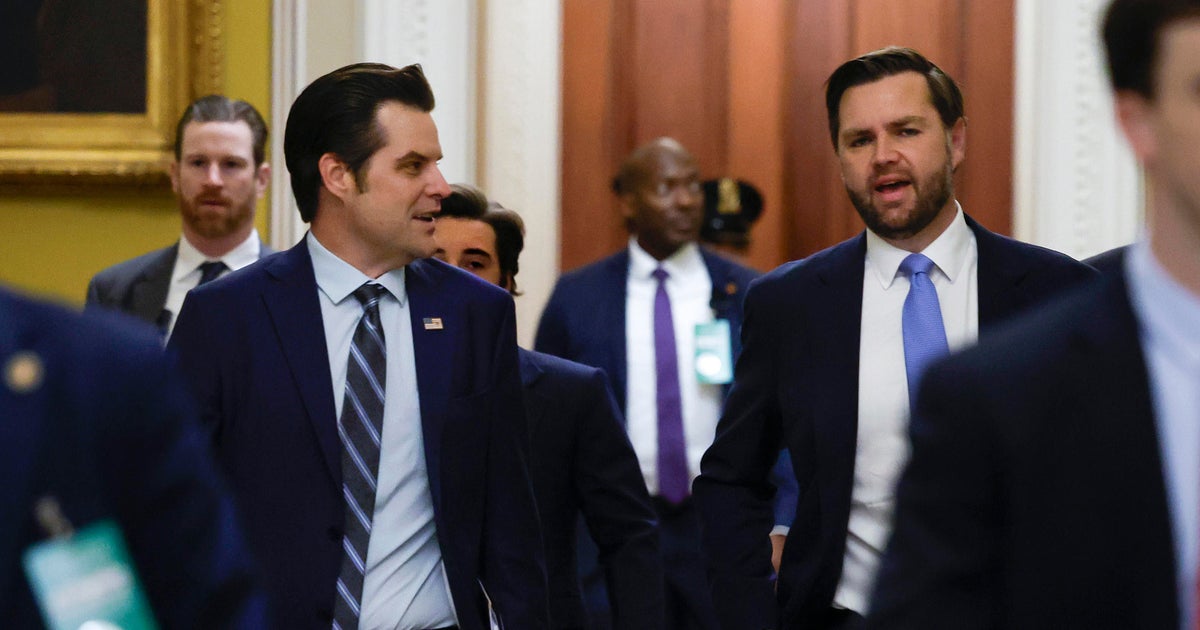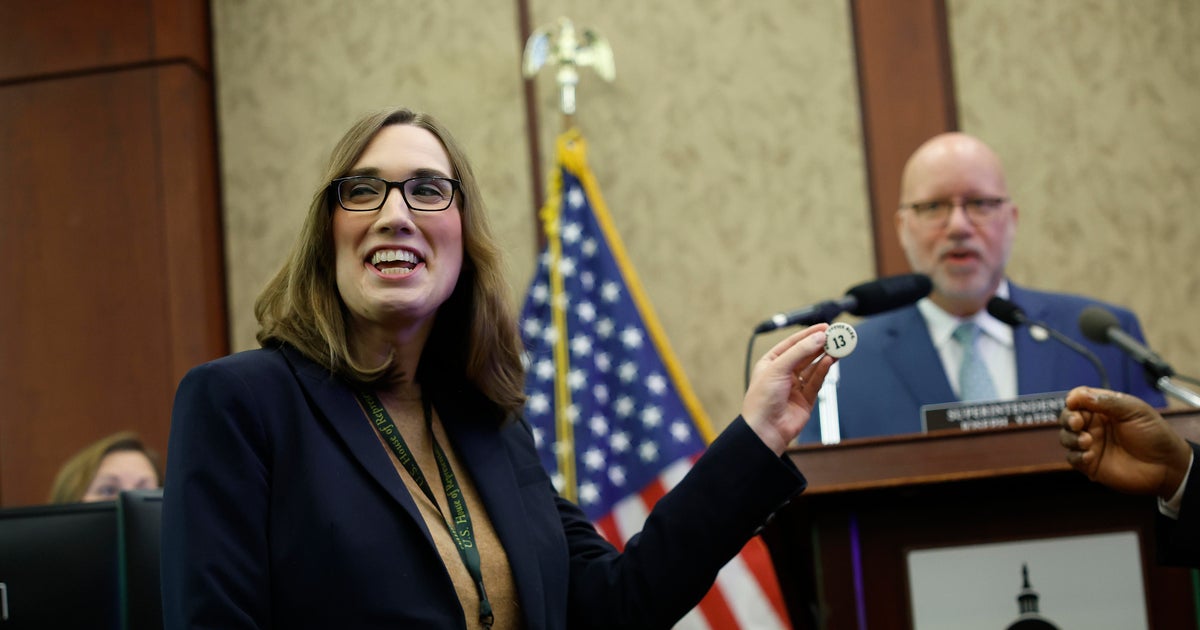Acting Capitol Police chief testifies on January 6 attack, warns of threat ahead of Biden address to Congress
Lawmakers questioned Acting Capitol Police Chief Yogananda Pittman Thursday, pressing her on why the department wasn't prepared to take on insurrectionists who stormed the Capitol on January 6, despite multiple intelligence reports warning of armed white supremacists and extremist groups.
"Although we knew the likelihood for violence by extremists, no credible threat indicated that tens of thousands would attack the U.S. Capitol, nor did the intelligence received from the FBI or any other law enforcement partner indicate such a threat," Pittman told the House Appropriations Committee Thursday.
The invasion of the Capitol was worse than police predicted, leaving them unprepared to lock down the building and confused about use of force protocols as invaders engaged in hand-to-hand combat with officers safeguarding the perimeter.
The department's Intelligence and Interagency Coordination Division produced four intelligence assessments leading up to the riot January 6, prompting extraordinary protection measures, including the special arming of officers and interception of radio frequencies used by rioters. Three days before the attack, Capitol Police circulated an internal document warning that armed extremist groups posed a violent threat during the election certification on January 6, Pittman said, viewing the procedure by Congress as their last chance to try to overturn the election results. Despite the assessments, Capitol Police were still woefully ill-equipped to confront a threat that was several times the magnitude of what they were expecting.
The department took some preventative measures, posting protective agents outside the homes of certain congressional leaders, even providing officers with assault rifles to guard lawmakers and with evacuation vehicles outside the Capitol. It also boosted the number of civil disturbance units, and deployed SWAT teams — including snipers — to act as counter-assault ground teams at the Ellipse. But Pittman noted that once the Capitol had been breached, "the Department's priority was evacuating Members."
Pittman testified that an intelligence assessment issued by the FBI field office in Norfolk, Virginia, on the eve of the attack was shared with task force agents embedded from Capitol Police in the FBI. The raw data notified law enforcement of an anonymous social media thread threatening war at the U.S. Capitol and was forwarded by email to a lieutenant in the House's protective and intelligence operations, but it went no further up the chain of command.
"That is a lesson learned for U.S. Capitol Police," Pittman said.
"Hindsight is 2020," Pittman continued. "If we were planning for a level 6, I believe that Chief Sund — if he could get that day back — would have planned for a level 10 security posture," she added, referencing then-Capitol Police Chief Steven Sund. "We would have changed from bike rack to the global fencing that we have in place now."
Pittman noted that there were "well over 10,000" people on the Capitol grounds on January 6, though only about 800 people actually entered the Capitol building.
During a heated exchange, Congresswoman Rosa DeLauro, Democrat of New York, expressed frustration about the inaction of the three-person Capitol Police board. "This board seems to be obsolete," DeLauro said. "This board seems to be non-functioning."
The board — comprising the Sergeant at Arms of the U.S. House of Representatives, the Sergeant at Arms and Doorkeeper of the U.S. Senate, and the Architect of the Capitol — is typically tasked with green-lighting additional National Guard deployments to the Capitol grounds.
Delays in National Guard reinforcements to aid Capitol Police remained a central point of contention in Thursday's hearing. Former Chief Sund's own testimony before Congress Tuesday revealed that he asked the Capitol Police Board for additional National Guard reinforcements on January 4, but officials settled on placing just 150 National guardsmen "on standby" ahead of the January 6 event.
"Who the hell gave Mr. Irving the authority to not bring requests by the Chief of the Capitol police who wants more help?" Congressman Tim Ryan, chairman of the subcommittee that funds the Capitol Police, asked. "Mr. Irving makes a unanimous decision all by himself to deny that request."
Pittman revealed that Sund's phone records show he called the House Sergeant at Arms Paul Irving at 12:58 p.m. on January 6 to request backup after rioters first descended on the Capitol steps. Nearly two hours passed before officials approved the request, deploying the National Guard.
Sund resigned under pressure as officials held him responsible for the security failures of January 6. Sund appeared before the Senate Rules Committee and the Homeland Security and Governmental Affairs Committee Tuesday, and blamed the intelligence community. He testified that Capitol Police prepared for January 6 based on available information and intelligence they were given.
Capitol Police officers voiced their displeasure with the department's top leaders with an overwhelming vote of no confidence earlier this month. The January 6 assault on the Capitol left approximately 140 Capitol and Metropolitan Police officers injured. One officer died and two committed suicide following the attack.
The U.S. Capitol Police Labor Committee, the union that represents thousands of U.S. Capitol Police officers, announced last week that 92% of Capitol Police officers voted that they had no confidence in Acting Chief Yogananda Pittman, and substantial majorities also voted no confidence in six other top leaders in the department.
"[O]ur leadership clearly failed us. We know because we were there," union chairman Gus Papathanasiou said, according to the statement.
The Capitol Police remain on high alert amid chatter by extremist groups threatening violence against members of Congress at President Biden's first address to Congress.
"We know that members of the militia groups that were present on January 6 have stated their desires that they want to blow up the Capitol and kill as many members as possible, with a direct nexus to the State of the Union ― which we know that date has not been identified," Pittman said her in testimony when pressed about the heightened security posture and barbed wire fencing surrounding the legislative building. "So based on that information, we think that it's prudent that Capitol Police maintain its enhanced and robust security posture until we address those vulnerabilities going forward."
Pittman told lawmakers Thursday that Capitol Police are investigating the actions of 35 officers on the day of the riot. Six officers have been suspended with pay amid allegations of misconduct. She did not offer an end date to the internal review, but noted such investigations are "typically completed in 60 to 90 days."
For its part, the Biden administration announced Thursday it will funnel $77 million in grant funding for state and local governments to combat domestic violent extremism (DVE).
The concrete measure aimed at preventing homegrown terrorist attacks is part of a larger $1.87 billion grant funding program "to help raise the nation's security baseline and prioritize activities to combat DVE," Secretary Mayorkas wrote in a statement.
DHS Secretary Alejandro Mayorkas indicated the agency would work to address online disinformation, including "extremist rhetoric spread through social media and other online platforms."




